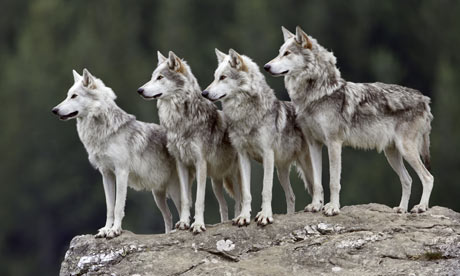
He has worked with bears and tigers in two previous films, and now French film director Jean-Jacques Annaud is planning to spend 18 months breeding and training wolves for his adaptation of the bestselling but controversial Chinese novel Wolf Totem.
The director, who ran into problems with the Chinese authorities over his film Seven Years in Tibet, is likely to provoke more trouble with this latest project: the book has sold millions of copies in China but, critical of the Chinese mindset, has also been the centre of furious debate.
Telling the story of a young Chinese student who goes to live in the remote grasslands of Inner Mongolia during the Cultural Revolution and learns about the symbiotic relationship the region's inhabitants have with its wolves, it is, according to its author Jiang Rong, a criticism of Chinese people's "sheep-like mentality". The Mongolians, he believes, are like wolves – free, independent and strong, while "Chinese people's weakest point is they are too obedient, they will do exactly as they are told".
"For thousands of years, elements of the Chinese psyche have not particularly changed; they still have a sheep-like mentality. So the real meaning of the book is to criticise the Chinese mentality," the author, who writes under a pseudonym and keeps a low profile, said in 2007.
Wolf Totem, winner of the Man Asia literary prize, is a fictionalisation of Jiang's own time in the grasslands of Central Asia: he lived for 11 years in the far north of Inner Mongolia during the Cultural Revolution, in an area of 4,000 square miles inhabited by just 800 people. During his time there, he raised a wolf cub from birth, as does his hero Chen, and learned of the disturbing ritual of the "wolf burial", when a dead body is given to the wolves to eat.
The film will be co-produced by the Beijing-based Forbidden City Film Company and Hong Kong's Bill Kong, according to Screen Daily. The Associated Press reported that Annaud would be forced to make an apolitical interpretation of the novel in order to pass Chinese film censorship, with the Beijing Forbidden City Film Company's statement about the project avoiding the book's political messages to describe it as "an environmental protection-themed novel about the relationship between man and nature, man and animal".

